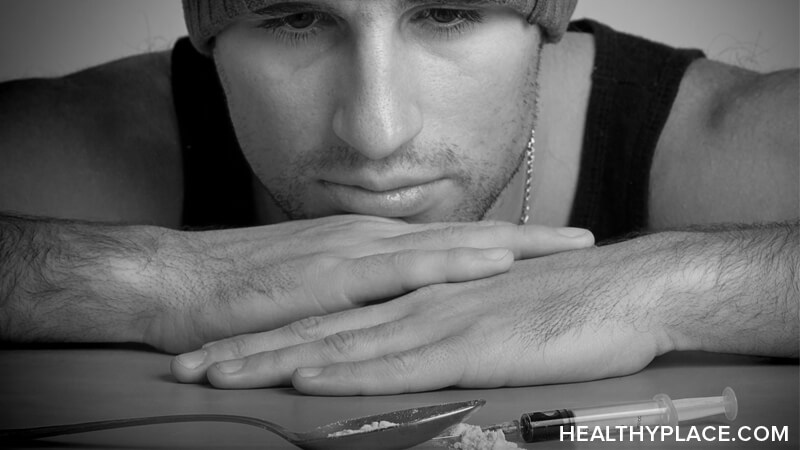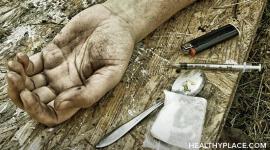Heroin Abuse, Heroin Overdose

Of those who begin using heroin, 23% of those will go on to become dependent on the drug.1 Once dependent on heroin, heroin abuse normally follows and heroin abuse often leads to a heroin overdose. Heroin overdose is the number one cause of death among heroin abusers.
Heroin Use Leads to Heroin Abuse
It is common for heroin use to lead to heroin abuse because using heroin produces pleasure and reward in the brain and this is followed, within hours, by unpleasant withdrawal symptoms. Not only do heroin users end up heroin abusers in the constant search for the pleasure and reward of a heroin high, but heroin drug abuse also occurs because heroin abusers take the drug to avoid feeling bad during heroin withdrawal.
Heroin abuse also occurs because of the body's rapid tolerance to the pleasurable effects of heroin. Almost immediately, a heroin user finds they must consume more heroin in order to achieve the same pleasurable effects. This can cause a rapid increase in dosage and the heroin abuser may take up to ten times their initial amount within only 3 - 4 months of usage.2
Heroin Abuse Leads to Heroin Overdose
Heroin overdose is common among heroin abusers killing almost 2% of heroin users each year.
This is not surprising as opium (which creates both heroin and morphine) was once used as a poison. (How is heroin made?)
Many heroin abusers are under the mistaken impression that smoking or snorting heroin cannot lead to a heroin overdose, but in fact, the risk of a heroin overdose is substantial no matter how heroin is used. 50% - 70% of intravenous heroin users have suffered non-fatal overdoses, with 20% - 30% having experienced a heroin overdose in the last year.3
While taking a greater amount of, or more concentrated, heroin can lead to a heroin overdose, other behaviors of the heroin abuser can also increase the risk of a heroin overdose. Heroin overdose is more common:
- When other drugs such as alcohol or benzodiazepines are consumed with heroin
- After a period of abstinence from heroin - such as relapse after treatment
- Using heroin in a new environment - this is due to something called "place conditioning" where the brain reacts with greater tolerance in places associated with drug use 2
Heroin Abuse - Signs of Heroin Overdose
Heroin overdoses can be fatal often from respiratory arrest, although other causes of death such as contaminant poisoning and heart problems can also cause death in heroin overdose.
Signs of heroin overdose include:4
- Coma
- No, shallow, or difficulty breathing
- Dry mouth
- Tiny pupils
- Tongue discoloration
- Low blood pressure
- Weak pulse
- Bluish nails and lips
- Constipation
- Seizures
- Confusion, disorientation
- Drowsiness
Heroin Abuse - Help for a Heroin Overdose
A heroin overdose must always be handled by health care professionals. Unfortunately, many heroin users do not get the help they need for a heroin overdose due to the illegal nature of the drug, but with immediate medical attention, most people do not die from an overdose of heroin.
Things to remember about getting help for a heroin overdose:
- Always treat a heroin overdose seriously - call 911
- Heroin overdoses are treatable and rarely result in death if handled by medical professionals
- No home remedy for a heroin overdose, such as packing the person in ice or injecting milk or saliva, is effective
APA Reference
Tracy, N.
(2021, December 15). Heroin Abuse, Heroin Overdose, HealthyPlace. Retrieved
on 2026, March 1 from https://www.healthyplace.com/addictions/heroin-addiction/heroin-abuse-heroin-overdose



